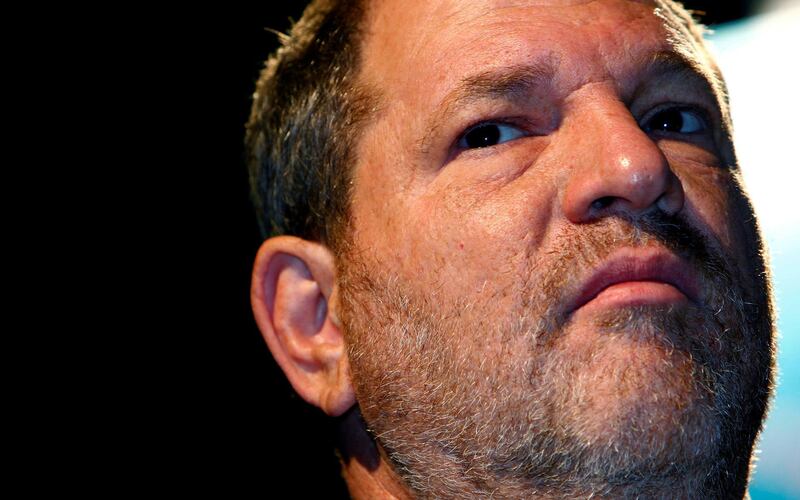Hollywood mogul Harvey Weinstein is expected to surrender to authorities Friday to face charges involving at least one of the women who have accused him of sexual assault, two law enforcement officials told the Associated Press.
It would be the first criminal case against Mr Weinstein to come out of the barrage of sexual abuse allegations from scores of women that destroyed his career and set off a national reckoning that brought down other powerful men in what has become known as the #MeToo movement.
The two officials said the criminal case involves allegations by then-aspiring actress Lucia Evans, who told a magazine that Mr Weinstein forced her to perform a sexual act. She was among the first women to speak out about the film producer.
The officials spoke Thursday to the AP on condition of anonymity because they weren’t authorized to discuss the investigation.
A grand jury has been hearing evidence in the case for weeks, and the precise charges against Mr Weinstein weren’t immediately clear. His attorney, Benjamin Brafman, declined to comment, though Mr Weinstein has said repeatedly through his lawyers that he did not have non-consensual sex with anyone.
Ms Evans told The New Yorker in a story published in October that Weinstein forced her to perform oral sex during a daytime meeting at his New York office in 2004, the summer before her senior year at Middlebury College.
“I said, over and over, ‘I don’t want to do this, stop, don’t’,” she told the magazine. “I tried to get away, but maybe I didn’t try hard enough. I didn’t want to kick him or fight him.”
Ms Evans, who is now a marketing consultant, didn’t report the incident to police at the time, telling The New Yorker’s Ronan Farrow that she blamed herself for not fighting back.
“It was always my fault for not stopping him,” she said.
Mr Brafman said in court paperwork filed this month in a bankruptcy proceeding that the allegations that Weinstein forced himself on women were “entirely without merit.”
“I am trying my very best to persuade both the federal and state prosecutors that he should not be arrested and or indicted, because he did not knowingly violate the law,” Mr Brafman wrote.
Manhattan District attorney Cyrus Vance’s office, which also declined comment, has come under enormous public pressure to bring a criminal case. Some women’s groups, including the Hollywood activist group Time’s Up, accused the Democrat of being too deferential to Mr Weinstein and too dismissive of his accusers.
In March, New York governor Andrew Cuomo took the extraordinary step of ordering the state’s attorney general to investigate whether Mr Vance acted properly in 2015 when he decided not to prosecute Mr Weinstein over a previous allegation of unwanted groping, made by an Italian model.
Mr Vance had insisted any decision would be based on the strength of the evidence, not on political considerations.
More than 75 women have accused Mr Weinstein of wrongdoing.
It’s not clear whether Mr Weinstein, 66, will face additional charges involving other women. The statute of limitations for rape in New York was eliminated in 2006, but not for attacks that happened prior to 2001.
Several filed a federal lawsuit claiming his efforts to prey on women and cover up complaints amounted to a criminal enterprise.
Authorities in California and London are also investigating assault allegations. Britain has no statute of limits on rape cases; some of the allegations under investigation there go back to the 1980s.






